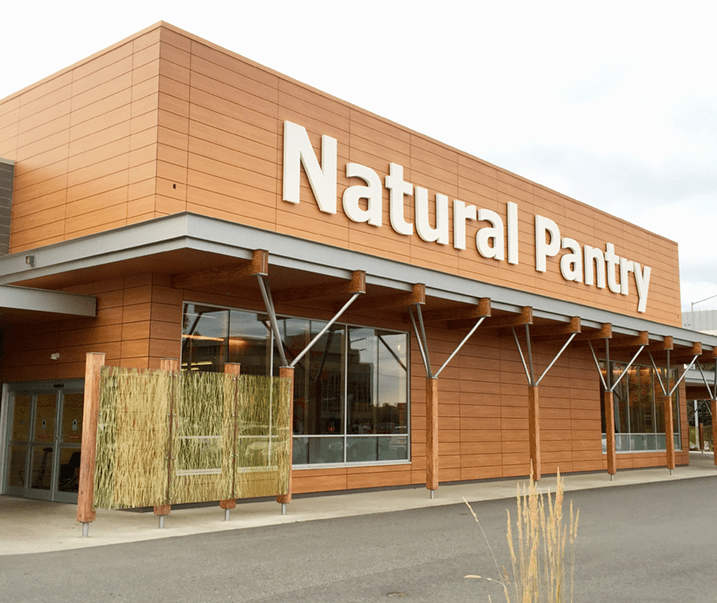In recent years, the concept of a natural pantry has gained immense popularity among health-conscious individuals. With an increasing awareness of the importance of nutrition and wellness, more people are looking to incorporate natural and unprocessed foods into their diets. A natural pantry is not just a collection of food items; it is a lifestyle choice that promotes better health and well-being.
This article will explore the essentials of building a natural pantry, the benefits it offers, and how you can transition from a conventional pantry to a natural one. From understanding the key components of a natural pantry to tips on sourcing ingredients, this comprehensive guide will provide you with the knowledge you need to create a healthier home.
Whether you are a seasoned health enthusiast or just starting your journey toward a more nutritious diet, this article is designed to equip you with the tools and information necessary to make informed choices about the food you consume. Let’s dive into the world of natural pantries and discover how they can transform your life.
Table of Contents
- What is a Natural Pantry?
- Benefits of a Natural Pantry
- Key Components of a Natural Pantry
- How to Build Your Natural Pantry
- Sourcing Natural Ingredients
- Maintaining Your Natural Pantry
- Recipes for Your Natural Pantry
- Conclusion
What is a Natural Pantry?
A natural pantry is a collection of food items that are minimally processed and free from artificial ingredients, preservatives, and additives. This concept emphasizes whole foods that are nutrient-dense and beneficial for health. A natural pantry typically includes items such as:
- Whole grains (quinoa, brown rice, oats)
- Nuts and seeds (almonds, chia seeds, flaxseeds)
- Dried fruits (raisins, apricots, dates)
- Legumes (beans, lentils, chickpeas)
- Herbs and spices (cinnamon, turmeric, basil)
Benefits of a Natural Pantry
Transitioning to a natural pantry comes with numerous health benefits, including:
- Improved Nutrition: Natural foods are richer in vitamins, minerals, and antioxidants.
- Weight Management: Whole foods tend to be more filling, helping to curb overeating.
- Better Digestive Health: Natural foods are often high in fiber, promoting healthy digestion.
- Reduced Risk of Chronic Diseases: A diet rich in whole foods can lower the risk of heart disease, diabetes, and obesity.
Key Components of a Natural Pantry
Building a natural pantry involves incorporating various food groups. Here are some key components:
Whole Grains
Whole grains should be a staple in your natural pantry. They are an excellent source of fiber and essential nutrients. Examples include:
- Brown rice
- Oats
- Quinoa
- Whole wheat flour
Nuts and Seeds
Nuts and seeds are rich in healthy fats, protein, and fiber. They make great snacks and can be added to various dishes. Consider including:
- Almonds
- Walnuts
- Chia seeds
- Sunflower seeds
Dried Fruits
Dried fruits add natural sweetness and are a great source of energy. Choose unsweetened varieties, such as:
- Dried apricots
- Raisins
- Dates
- Figs
Legumes
Legumes are an excellent source of protein and fiber. They're versatile and can be used in many recipes. Include:
- Chickpeas
- Lentils
- Black beans
- Kidney beans
How to Build Your Natural Pantry
Building a natural pantry takes time and effort. Here are some steps to guide you:
- Assess Your Current Pantry: Identify processed items and replace them with natural alternatives.
- Make a Shopping List: Focus on whole foods and organic options.
- Start Slow: Gradually replace items rather than overhauling your pantry all at once.
- Stay Organized: Keep your pantry tidy and categorize items for easy access.
Sourcing Natural Ingredients
Finding high-quality natural ingredients is crucial for your pantry. Here are some tips:
- Buy Local: Support local farmers and markets to find fresh produce.
- Choose Organic: Whenever possible, opt for organic products to avoid pesticides.
- Read Labels: Check ingredient lists and avoid products with additives.
Maintaining Your Natural Pantry
Once you've established your natural pantry, maintaining it is essential. Consider these tips:
- Regularly Check Expiry Dates: Rotate items to ensure freshness.
- Keep a Inventory: Track what you have to avoid overbuying.
- Experiment with New Recipes: Keep your meals exciting by trying new dishes.
Recipes for Your Natural Pantry
Here are a few simple recipes to get you started with your natural pantry:
Quinoa Salad
- 1 cup quinoa
- 2 cups water
- 1 cucumber, diced
- 1 bell pepper, diced
- 1/4 cup olive oil
- 1/4 cup lemon juice
- Salt and pepper to taste
Cook quinoa in water until fluffy. Mix with vegetables, oil, and lemon juice.
Chickpea Stir-Fry
- 1 can chickpeas, drained
- 1 cup mixed vegetables
- 2 tablespoons soy sauce
- 1 tablespoon olive oil
Sauté vegetables in oil, add chickpeas and soy sauce, and stir until heated through.
Conclusion
Transitioning to a natural pantry is a rewarding journey that can significantly improve your health and well-being. By incorporating whole foods and minimizing processed items, you can enjoy a more nutritious diet. Remember to source your ingredients wisely, maintain your pantry effectively, and have fun experimenting with new recipes. Start today and take the first step toward a healthier lifestyle!
We invite you to share your thoughts in the comments section below and let us know how your natural pantry journey is going. Don’t forget to share this article with friends and family who might be interested in improving their health through better food choices. Happy cooking!
Thank you for reading, and we hope to see you back here for more tips and insights on healthy living!
Shores Of Panama: Exploring The Beauty And Culture
Amos Bocelli: The Rising Star In The World Of Music
Exploring The Life And Career Of Isabelle Adjani: A Cinematic Icon


